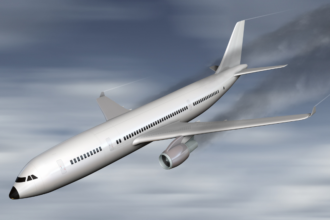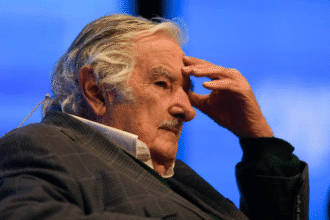President Miguel Díaz-Canel acknowledged that at least six people had perished as a result of Hurricane Oscar’s terrible effects on Cuba. Originally a category one storm, the hurricane landed on Sunday close to the eastern Cuban city of Baracoa and then dropped to a tropical storm. Oscar brought significant damage even with its downgrading.
The province of Guantánamo suffered the most; strong winds and heavy rain destroyed around 1,000 houses. About 10 million people were in darkness as the storm coincided with an island-wide power outage.
What Efforts Are Underway to Rescue Those Affected?
Early Tuesday, President Díaz-Canel addressed the country, noting the significant damage and the continuous difficulties in reaching some regions still cut off by the hurricane.
“As of this morning, the damage Oscar caused prevents us from accessing some areas,” the president stated. “Rescue personnel are doing everything they can to reach persons impacted.”
He then elaborated on the two towns of San Antonio and Imías, remarking, “These areas have experienced levels of flooding that were never before recorded in our history.”
Although six deaths have been verified—all from San Antonio—no information has been provided on the circumstances of their passing.
Could There Be More Flooding Beyond Cuba?
Meteorologists are alerting Oscar’s path of travel to indicate localized flash floods in the Turks and Caicos Islands and the southeast Bahamas. The storm is likely to travel northeast, increasing the number of hazards in the area.
Why Have Power Outages Led to Protests in Cuba?
Although power outages are not unusual in Cuba, Hurricane Oscar’s aftermath has driven many to the brink. Last week’s failure of the country’s giant power plant started a widespread blackout, depriving the nation of electricity. Some areas lacked electricity by Monday night, which caused frustration to boil under the surface.
Unusual for Cuba, where illegal demonstrations are discouraged, some residents went to the streets pounding pots and pans and yelling, “Turn on the lights!” This rare protest emphasizes the desperation many people experience since power disruptions aggravate other island problems.
Interviewing one man, he said, “We have been without electricity since Friday. Since Friday, my eighty-five-year-old grandma has been requesting cold water.”
Another mother related her hardships: “The food has spoiled, the children are struggling, we have no cold water, we have nothing.”
How Is Cuba Coping With the Broader Crisis?
President Díaz-Canel attributed the continuous power problem to the tightening of the decades-long US trade blockade, which has worsened the Cuban economy. He told the people, “The state will not rest until power is fully restored.”
Still, the power disruptions just scratch the surface of a more general issue. Cuba is under three decades of great economic crisis right now. Besides power scarcity, significant food and fuel shortages aggravate the population’s life difficulty.
The aggravation is growing for many Cubans. “We are fed up,” remarked a neighborhood still without power inhabitants, reflecting the feelings of many on the island.
Natural disasters combined with continuous economic difficulty have left many Cubans feeling hopeless and unsure about the future as the nation works to heal from the terrible consequences of Hurricane Oscar.








